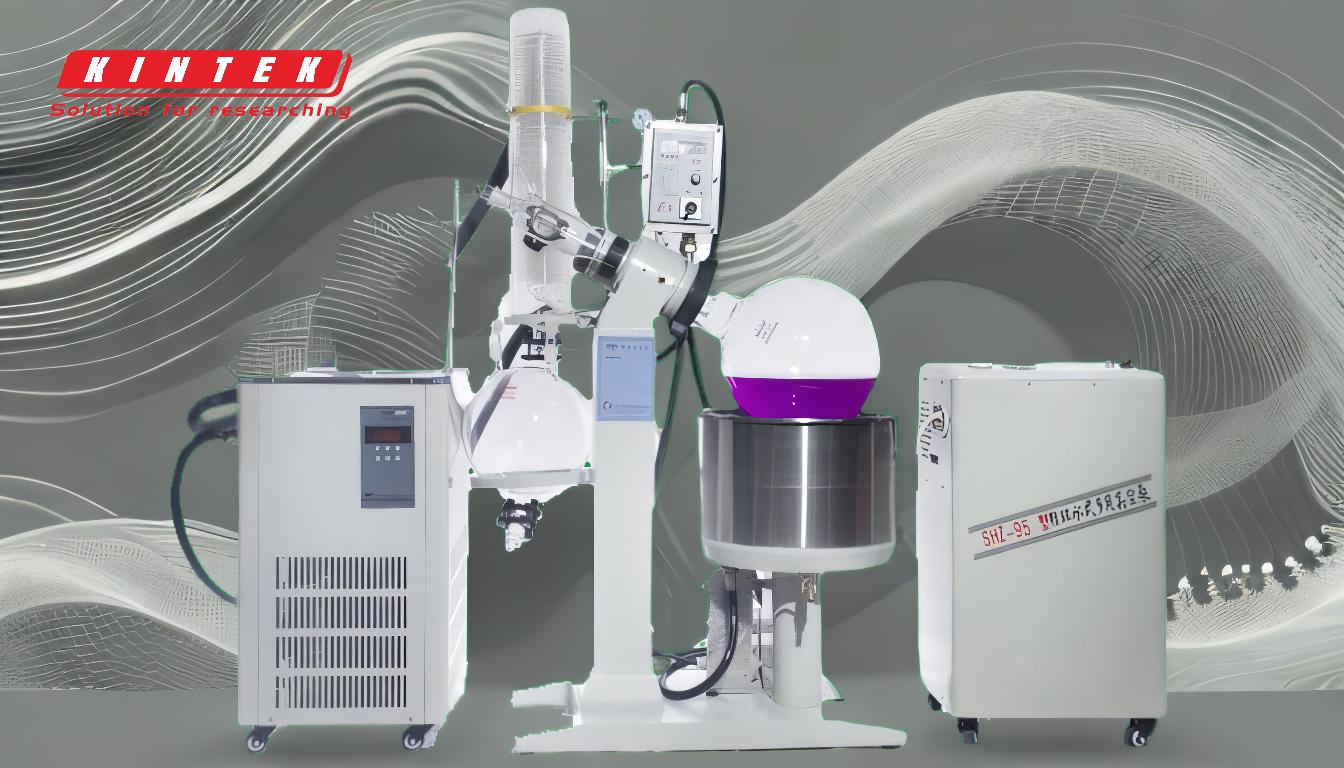Distillation is a complex process influenced by several factors that ensure efficient separation of components and high product quality. Key factors include the system's vacuum level, temperature control, feed rate, and equipment design. The vacuum level, controlled by the vacuum pump and system tightness, directly impacts boiling points and evaporation efficiency. Temperature regulation, such as heat pot and water bath temperatures, ensures optimal vaporization and condensation. Feed rate consistency and equipment parameters like rotation speed and flask height also play critical roles. Additionally, the physical properties of the materials being distilled, such as boiling point differences, determine whether simple or fractional distillation is suitable. These factors collectively influence the efficiency, purity, and yield of the distillation process.
Key Points Explained:

-
Vacuum Level and System Tightness:
- The vacuum level is crucial for lowering boiling points, reducing thermal degradation, and improving evaporation efficiency. A well-maintained vacuum system, including a powerful vacuum pump, tight sealing rings, and durable vacuum tubes (e.g., PTFE), ensures consistent performance.
- System tightness prevents leaks, maintaining the desired vacuum and preventing contamination or inefficiencies.
-
Temperature Control:
- Heat Pot Temperature: The temperature of the heating source must be carefully controlled to ensure the liquid with the lower boiling point vaporizes efficiently without overheating the mixture.
- Water Bath Temperature: In rotary evaporators, the water bath temperature must be optimized to balance evaporation and condensation rates.
- Cooling Medium Temperature: Effective cooling ensures rapid condensation of vapors, improving separation efficiency.
-
Feed Rate:
- A steady feed rate ensures consistent processing conditions, preventing fluctuations in separation efficiency and product quality. Irregular feed rates can lead to incomplete distillation or product degradation.
-
Equipment Design and Parameters:
- Rotation Speed: In rotary evaporators, the rotation speed affects the surface area of the liquid exposed to heat, influencing evaporation rates.
- Distillation Flask Height: Adjusting the flask height can optimize the contact between the liquid and the heating source.
- Material Input Volume: Proper material input volume ensures the system operates within its capacity, avoiding overloading or underutilization.
-
Physical Properties of Materials:
- Boiling Point Differences: Materials with boiling points differing by less than 25 °C (45 °F) typically require fractional distillation, while larger differences allow for simple distillation.
- Thermal Sensitivity: Materials prone to degradation at high temperatures benefit from vacuum distillation, which lowers boiling points and reduces residence times.
-
Operational Consistency:
- Maintaining consistent operational parameters, such as vacuum level, temperature, and feed rate, is critical for achieving high separation efficiency and product purity. Inconsistent conditions can lead to variations in product quality and yield.
By carefully managing these factors, distillation processes can achieve optimal efficiency, high product purity, and minimal material degradation, making them suitable for a wide range of applications, including CBD and THC oil production.
Summary Table:
| Key Factor | Impact on Distillation |
|---|---|
| Vacuum Level | Lowers boiling points, reduces thermal degradation, and improves evaporation efficiency. |
| Temperature Control | Ensures optimal vaporization and condensation rates for efficient separation. |
| Feed Rate | Maintains consistent processing conditions, preventing product degradation. |
| Equipment Design | Influences evaporation rates and contact between liquid and heating source. |
| Material Properties | Determines suitability for simple or fractional distillation based on boiling points. |
| Operational Consistency | Ensures high separation efficiency, product purity, and minimal degradation. |
Optimize your distillation process for maximum efficiency—contact our experts today!











